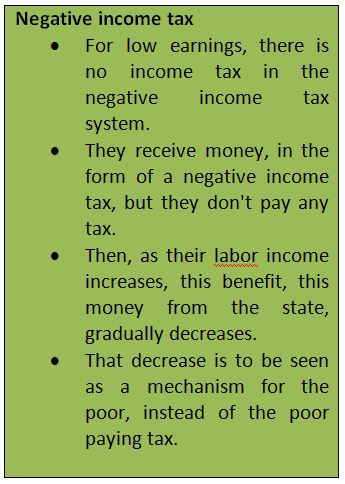

US-based researcher says Universal Basic Income is the 'vaccine' for poverty.
Context
US-based researcher says Universal Basic Income is the 'vaccine' for poverty.
About
- Universal basic income (UBI) is a government program in which every adult citizen receives a set amount of money regularly.
- The goals of a basic income system are to alleviate poverty and replace other need-based social programs that potentially require greater bureaucratic involvement.
- The idea of universal basic income has gained momentum in the U.S. as automation increasingly replaces workers in manufacturing and other sectors of the economy.
Understanding Universal Basic Income (UBI)
- The idea of providing a basic income to all members of society goes back centuries.
|
What Countries Have Universal Basic Income? There are many cities, states, and countries that are experimenting with a universal basic income. The universal income's simplicity makes it an attractive alternative to welfare programs.
|
- Experiments with negative income tax took place in the 1960s and the 1970s in the United States and Canada and were followed by an increased debate in Europe from the 1980s and forward.
- Basic income is generally viewed as an alternative kind of welfare state, so it can then be seen in the perspective of the development of that, where social insurances are a core feature.
Pros and Cons of Universal Basic Income
Pros
- Workers could afford to wait for a better job or better wages.
- May help remove the "poverty trap" from traditional welfare programs.
- Citizens could have simple, straightforward financial assistance that minimizes bureaucracy.
- The government would spend less to administer the program than with traditional welfare.
- People would have more money to start families in countries with low birth rates.
- The payments could help stabilize the economy during recessionary periods.
Cons
- Inflation could be triggered because of the increase in demand for goods and services.
- There won't be an increased standard of living in the long run because of inflated prices.
- A reduced program with smaller payments won't make a real difference to poverty-stricken families.
- Free income may not incentivize people to get jobs, and could make work seem optional.
Free income could perpetuate the falling labor force participation rate.



